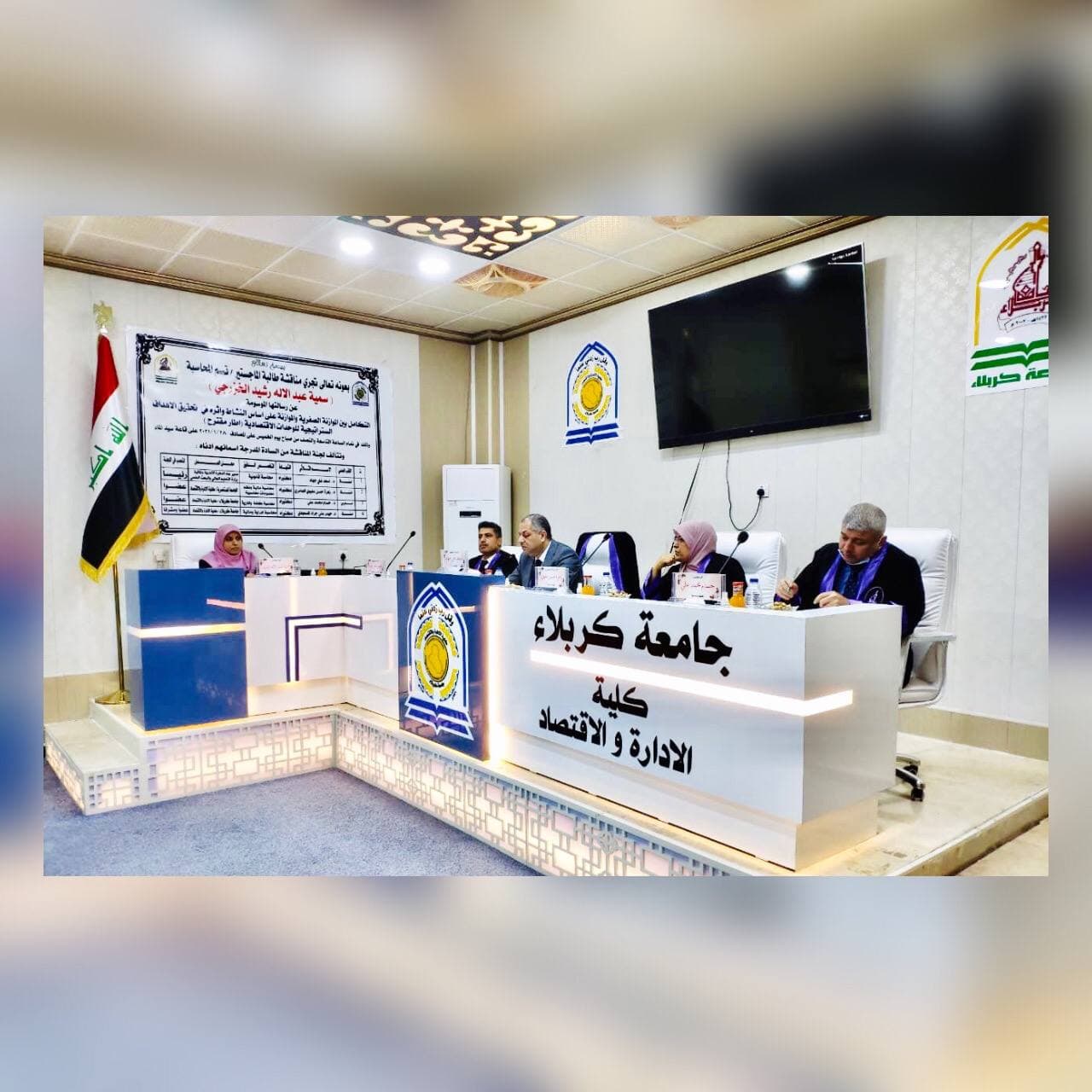The integration between the zero-based budget and the activity-based budget and its impact on achieving the strategic goals of the economic units
(Suggested framework)
A Thesis Submitted to
The Council of the College of Administration and
Economics – Karbala University ,as Partial Fulfillment
of Requirements for the Degree of Master of Science in
Accounting
By
Sumiya Abdul-eIlah Rashid
Supervised by
Prof. Dr. Hayder Ali Jarad AL- Massoodi
Abstract
The zero-based budget and the activity-based budget are considered one of the planning tools in the field of managerial accounting that, by integrating them, economic units can achieve their strategic objectives and help them reduce costs by calculating costs in the activity-based costing system (ABC) method, which gives them accuracy that exceeds the accuracy obtained from the methods. Traditional, as it helps management in planning and taking appropriate administrative decisions. The zero-sum budget focuses on re-evaluating activities and determines separate levels for each activity in line with the level of available resources. As for activity-based budgeting, it focuses on justifying costs and eliminating non-value-adding activities, and provides useful information on improving the production process, pricing and profitability analysis, and both types of budgets focus on analyzing activities and eliminating non-value-adding activities as well as on efficient planning and control.
The research aims to study the complementary relationship between the two budgets, as the zero-based budget has not previously integrated with the budget on the basis of activity, and the current research is an attempt to integrate the advantages of the two types in a single model that includes the largest amount of advantages enjoyed by these two budgets through application in one of the factories of the State Company for Industries The textile industry in Hilla, which is the Qadifah factory as a research community and the sewing department as the research sample. To achieve this goal, the researcher relied on data from the laboratory records obtained through the department’s administration and from field visits and personal interviews.
The researcher reached multiple conclusions, including the possibility of achieving integration between the zero budget and the activity-based budget, as well as reducing costs, achieving efficiency in performance, evaluating the performance of employees, and then achieving the strategic objectives of economic unity. In the research sample, there are also the necessary ingredients to prepare the zero-based budget on the basis of activity, in addition to the presence of a number of highly experienced competencies, who can prepare budgets using modern methods such as the zero-based budget on the basis of activity if they have the appropriate conditions and support from senior management and the most important recommendations mentioned It is the need for Iraqi economic units to adopt modern budget systems with the help of experts and specialists with sufficient expertise and experience in the field of preparing modern budgets, which helps in enhancing the accuracy of financial forecasts and achieving planning and control goals, and the importance of a gradual shift towards zero-based budgeting on the basis of activity and in stages in the various departments. In the factory and benefit from the experiences of the factory workers.































































